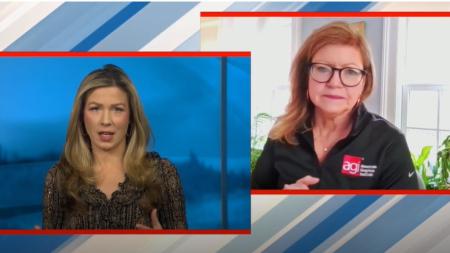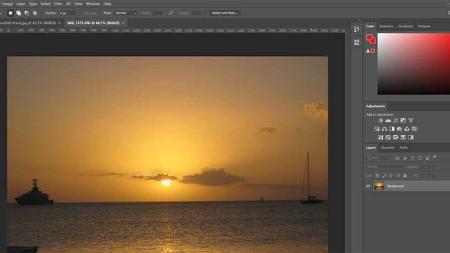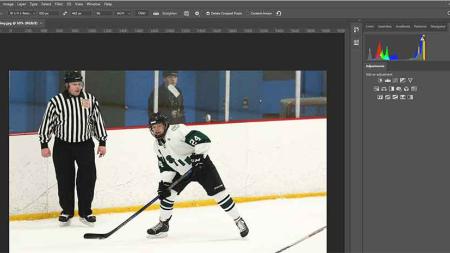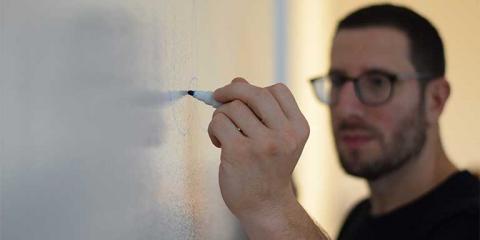
Related Class
Photoshop in news photography limited with RAW photos ban
- Published on
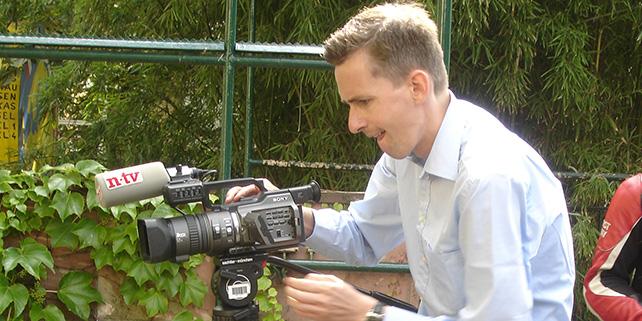
In an effort to avoid Photoshop-like effects from being applied to news images, photographs captured in the RAW format will no longer be accepted from by Reuters from news photographers. The large international news organization is requiring that all news images be captured, processed, and saved in the JPEG format.
Reuters indicated that images captured using RAW can be processed using Photoshop or other tools and because of this they run the risk of not accurately reflecting the reality of what was captured. Reuters does not want photographers to interpret the news, which can occur when processing RAW images, including making color adjustments and many of the other edits that are taught as part of the curriculum in many Photoshop classes.
Just as news writers attempt to capture events accurately, Reuters wants their photos to be similarly accurate. If photos are opened in Photoshop and photographers then process the images to their own aesthetic tastes or memory, then the impartiality and realism of the news is questioned. In order to avoid these possibilities, Reuters is using image formats that are less subjective and less likely to be manipulated.
The issue of news photographers manipulating images, whether with Photoshop retouching or color and contrast adjustments, is becoming an increasing concern for journalists. The World Press Photos competition in 2014 disqualified 20 percent of participants due to excessive changes between the original image and the file submitted for the competition.
There is consensus among news photographers that changing the intent of an image is wrong, and large-scale edits should be prohibited. Most photographers believe using Photoshop for minor adjustments such as contrast or brightness are acceptable. But there is little consensus among photographers as to the boundary between acceptable minor adjustments and major image-changing edits according to a study last year from the Word Press Photo association.. Because there is no clearly defined boundary, there are certain to be well-intentioned photojournalists who will edit images in a way that others may find objectionable. The decision by Reuters seeks to limit this subjective approach, creating a consistent way of submitting images in which the photographers own interpretation is not overlaid onto the image.
About the author
Jennifer Smith is a user experience designer, educator and author based in Boston. She has worked in the field of user experience design for more than 15 years.She has designed websites, ecommerce sites, apps, and embedded systems. Jennifer designs solutions for mobile, desktop, and iOT devices.
Jennifer delivers UX training and UX consulting for large Fortune 100 companies, small start-ups, and independent software vendors.She has served as a Designer in Residence at Microsoft, assisting third-party app developers to improve their design solutions and create successful user experiences. She has been hired by Adobe and Microsoft to deliver training workshops to their staff, and has traveled to Asia, Europe, India, the Middle East, and across the U.S. to deliver courses and assist on UX design projects. She has extensive knowledge of modern UX Design, and worked closely with major tech companies to create educational material and deliver UX workshops to key partners globally. Jennifer works with a wide range of prototyping tools including XD, Sketch, Balsamiq, Fireworks, Photoshop, Illustrator, and Blend for Visual Studio. She also works extensively in the fields of presentation design and visual design.
Jennifer is also an expert on Photoshop, digital image editing, and photo manipulation. Having written 10 books on Photoshop, and having consulted and provided training to major media companies and businesses around the globe.
Jennifer is the author of more than 20 books on design tools and processes, including Adobe Creative Cloud for Dummies, Adobe Creative Cloud Digital Classroom, and Photoshop Digital Classroom. She has been awarded a Microsoft MVP three times for her work with user experience design in creating apps for touch, desktop, and mobile devices. Jennifer holds the CPUX-F certification from the User Experience Qualification Board and assists others in attaining this designation in leading a UX certification course at American Graphics Institute. She is a candidate for a Master’s degree in Human Factors in Information Design.
